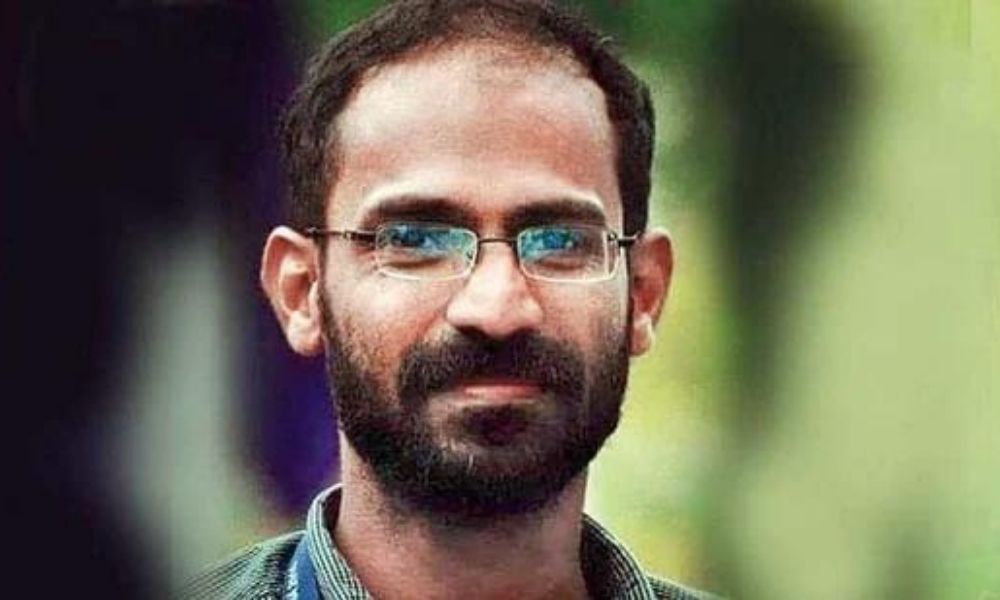Khushi Bajpai
Published on: September 6, 2022 at 20:56 IST
In the case brought against him under the Unlawful Activities Prevention Act, the State of Uttar Pradesh has resisted the journalist from Kerala, Siddique Kappan’s, request for bail (UAPA).
The State government claimed in an affidavit submitted on Monday to the Supreme Court that Kappan was a part of a larger plot to sow religious strife and foment terrorism in the nation with the other co-accused, including CFI financial launderer Rauf Sharif, and that he had close ties to the extremist group, Popular Front of India (PFI), which has anti-national goals.
“The investigation has shown that the petitioner, along with the other co-accused (including Rauf Sharif, the CFI’s financial launderer), is a part of a larger plot to sow religious strife and foment terrorism in the nation, particularly in the wake of anti-CAA protests and violence, the Babri Masjid ruling by this Hon’ble Court, and the Hathras incident.
The PFI conspiracy and agenda have been around since 2010, when PFI cadres (ex-SIMI) brutally injured Christian Lecturer TJ Thomas of Newman College by hacking off his hands, and since 2013, when the Kerala police raided a PFI-backed weapons training terrorist camp at Narath. The NIA later took over the investigation,” It was delivered.
Kappan, who has been detained by the government of Uttar Pradesh under the UAPA, appealed to the Supreme Court against the Allahabad High Court’s decision to deny him bail on August 2.
While traveling to Hathras to cover the gang-rape and murder of a 19-year-old Dalit girl, Kappan, a reporter for the Malayalam news site Azhimukham and secretary of the Delhi chapter of the Kerala Union of Working Journalists (KUWJ), was detained in Uttar Pradesh in October 2020 along with three other individuals.
According to the prosecution, Kappan and the other defendants were on their way to Hathras with the goal of upsetting the peace in the community. It was claimed that they were raising money to support a website that spreads false information and calls for violence.
They were all accused of violating the Indian Penal Code’s Sections 295A (deliberate and malicious acts intended to outrage religious feelings), Sections 65, 72, and 75 of the Information Technology Act, Sections 124A (sedition), Section 153A (promoting enmity between different groups on the basis of religion), and Sections 17 and 18 of the Unlawful Activities (Prevention) Act (UAPA).
In July 2021, a Mathura court denied Kappan’s request for bail on the grounds that there was a strong presumption that he and his co-accused were seeking to undermine law and order as they traveled to cover the Hathras gang rape incident in Uttar Pradesh. Then he went up to the High Court.
Justice Krishan Pahal, a single judge, rejected the plea, stating that the prosecution had made a prima facie case that the defendant’s travel with a co-accused who was not a member of the media community and the use of questionable funds by him and his associates were significant factors in the prosecution’s case.
This prompted an appeal to the apex court. On August 29, the Supreme Court requested the State of UP’s response to Kappan’s plea.
According to the affidavit submitted by the UP government, Kappan was detained while traveling with people who had been charged in prior riot cases.
“The petitioner was actually a member of the PFI/CFI delegation that met with the family of the Hathras victim in order to sow strife and fan dread, according to the inquiry. According to the investigation, co-accused Rauf Sharif (National General Secretary, CFI, chief fund raiser, and financial transaction handler for PFI/CFI), who had also given funding for the trip, directed the delegation to be dispatched to Hathras,” the Affidavit stated.
The State Government argued that Kappan’s claim that he was travelling to Hathras as a “journalist” was obviously an attempt at dissimulation.
The affidavit also emphasized the Editor of Azhimukham, the news platform where Kappan worked, in this regard.
“Even the statement of the Editor of Azhimukham, annexed to the Petition, nowhere states that the said publication had deputed the Petitioner to cover the Hathras incident, it merely states that the petitioner had sent the office a WhatsApp message that he is going to Hathras at 12.10 am on 5.10.2022,” according to the affidavit.
Additionally, it was mentioned that Kappan had previously worked for Thejas, a publication that served as PFI’s spokesperson until its closure in 2018.
The submission stated that “the newspaper was forced to close in India in 2018 amid reports (including by a Kerala High Court-appointed independent commission) that the paper’s coverage was intended to sow religious strife.”
He still continued to have a close relationship with the Editor-in-Chief of Thejas, as was evident from WhatsApp chats, the State said:
“Koya continued to warn the petitioner in 2018 that government raids on Bhima Koregaon activists were imminent. The petitioner creates such stories in Azhimukham from a communal strife/fomenting standpoint and sends them to P Koya as part of an ongoing communication exchange in which P Koya offers stories that the petitioner can write and make viral,”
The affidavit further argued that the petitioner was unable to explain where the cash deposit of 45,000 rupees that was taken from him came from.
In the present petition, the petitioner has claimed that the ₹25,000 of 15.09.2020 was money deposited by him which he had saved to construct a house and that the ₹20,000 of 4.10.2020 was money that had been borrowed by friends and returned to him.
However, in his supplementary rejoinder before High Court, the petitioner has (at p. 364) states that “the alleged payments made to the applicant are relating to his salary paid for working at Tejas Daily.” Thus, there is a clear contradiction in the Petitioner’s own version of the source of the said funds,” the affidavit stated.

